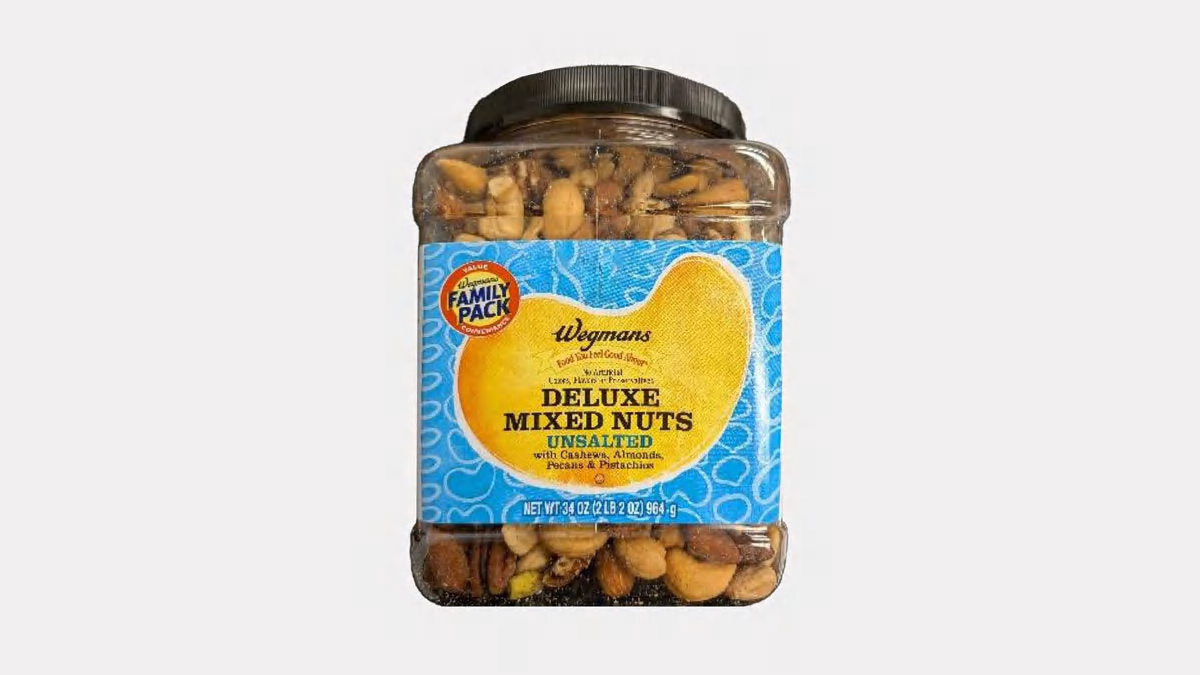News
2026-01-04
When Noone Knows The Signs
3 weeks ago
They are on the verge of being turned into their original carbon components.
Pan Fried Pizza
https://www.youtube.com/watch?v=_wYro4adrw8
I don't know if this is a good idea or not, but it looks good.
2026-01-03
2026-01-02
How iPhone Proves Electric Cars Will Win
https://www.youtube.com/watch?v=BMEDY2xGC8Y
For the moment, gasoline is much more energy dense and a more convenient way to power your car. I don't think that the laws of physics will ever allow battery power to be as convenient.
If we run out of oil, and we will, I think that we will still use synthetic fuels.
Electric cars are great if all you want to do is make short trips.
Is Iran going to overthrow their govt?
On Fri, Jan 2, 2026 at 4:50 PM Larry wrote:
https://youtu.be/42SGEttvT6A?si=VrBQ1yLcP3hF7KWmI hope so... but the govt will probably pull out the guns and tanks
---------- Forwarded message ---------
From: John Coffey <john2001plus@gmail.com>
Date: Fri, Jan 2, 2026 at 4:57 PM
Subject: Re: Is Iran going to overthrow their govt?
To:
From: John Coffey <john2001plus@gmail.com>
Date: Fri, Jan 2, 2026 at 4:57 PM
Subject: Re: Is Iran going to overthrow their govt?
To:
The Soviet Union fell when the military refused to get involved in the conflict.
My favorite story about the fall of Communism...
When protestors were attacking the Berlin Wall, the Mayor of East Berlin was outraged and claimed that the protestors would be arrested. A couple of nights later he was at the wall with a sledgehammer in front of cameras knocking down the wall. In other words, he saw which way the political winds were blowing and acted accordingly. This guy deserves an award for best politician.
Conservatives sound alarm over Zohran Mamdani's 'collectivism' comment
"We will replace the frigidity of rugged individualism with the warmth of collectivism," Mamdani declared in his inaugural address.
https://www.foxnews.com/politics/critics-say-mamdanis-vow-swap-rugged-individualism-warmth-collectivism-has-sinister-undertone
'The "warmth" of collectivism that always requires coercion and force,' Florida Gov Ron DeSantis noted.
https://www.foxnews.com/politics/critics-say-mamdanis-vow-swap-rugged-individualism-warmth-collectivism-has-sinister-undertone
'The "warmth" of collectivism that always requires coercion and force,' Florida Gov Ron DeSantis noted.
2026-01-01
20 Essential Science Fiction Books
https://www.youtube.com/watch?v=RavzF4Itlh0
I used to read a ton up to the 1990s, then it seemed like I got too busy.
I've read 7 of the 20 books...
War of the Worlds.
Foundation (trilogy)
Stranger in a Strange Land (I've read most of Robert Heinlein)
Dune (I read all the sequels in the 1970s.)
The Mote in God's Eye
The Hitchhiker's Guide to the Galaxy (and sequels)
Hyperion (and sequel)
He does not include the "I Robot" novels. Asimov would eventually merge these into his Foundation novels.
Lately I have been listening to a ton of Star Wars audiobooks.
2025-12-30
2025-12-29
2025-12-28
Windfall
When I hear the word "windfall", I think of a big pile of cash. However, that wasn't its original meaning. If a storm were to knock down a tree, the wood would be easier to harvest, so it is called a windfall. Likewise, fruit that falls from a tree is easier to harvest, so it is called a windfall.
2025-12-27
Scientists may have finally 'seen' dark matter for the 1st time | Space
it would mark the first time humanity has 'seen' dark matter. And it turns out that dark matter is a new particle not included in the current standard model of particle physics," Totani said. "This signifies a major development in astronomy and physics."
While Totani is confident that what he and his colleagues have detected is the signature of dark matter WIMPs annihilating each other at the heart of the Milky Way, the scientific community in general will require more hard evidence before the book is closed on this nearly century-old mystery.
"This may be achieved once more data is accumulated, and if so, it would provide even stronger evidence that the gamma rays originate from dark matter," Totani added.
While Totani is confident that what he and his colleagues have detected is the signature of dark matter WIMPs annihilating each other at the heart of the Milky Way, the scientific community in general will require more hard evidence before the book is closed on this nearly century-old mystery.
"This may be achieved once more data is accumulated, and if so, it would provide even stronger evidence that the gamma rays originate from dark matter," Totani added.
Does The CIA Make People Disappear? CIA Spy Reveals
https://www.youtube.com/watch?v=BXtDH2IXKY8
Extreme threats might require extreme measures. If the threat is low then the measures don't need to be so extreme.
When he says that the CIA can spy on you through your smart TV, that doesn't mean that they are spying on every American through their TVs.
I have no way of knowing if all of his claims are true. He could be seeking attention for personal gain.
We do know that the government was monitoring all international calls and emails.
According to Google...
Government internet activity monitoring
The government engages in widespread internet monitoring, meaning it is highly likely that your internet activity data is part of mass surveillance efforts and can be retrieved as needed. Targeted, individual surveillance typically requires legal authorization but is also possible.
How Government Monitoring Works
Government agencies like the NSA, FBI, and DHS collect information through various methods:
- Direct Access: Agencies obtain communications and data directly from major tech companies (Google, Facebook, Apple) and internet service providers (ISPs) like AT&T and Verizon, often via secret court orders or data-sharing agreements.
- Public Information: Federal agencies actively monitor publicly available online information and social media postings for investigations, threat detection, and situational awareness.
- Automated Systems & AI: Powerful AI-based tools analyze vast amounts of collected data and metadata to identify patterns, relationships, and potential threats.
- Malware: In some cases, agencies may use malware or spyware installed on a user's device to monitor activity.
What Data Is Collected
Agencies collect various types of data, depending on the surveillance program and legal basis:
- Metadata: This includes your IP address, the websites you visit, phone numbers called, duration of communications, and location data. This can reveal significant information about an individual's habits and associations.
- Content: Under certain legal authorities (like the Foreign Intelligence Surveillance Act), the content of communications, such as emails, instant messages, and phone calls, can be intercepted and analyzed.
- Social Media Data: Public posts, photos, likes, comments, and connections are collected and analyzed, sometimes without suspicion of wrongdoing.
Legal Framework
In the U.S., surveillance is conducted under laws such as the Foreign Intelligence Surveillance Act (FISA) and the USA PATRIOT Act, and Executive Orders. These laws balance national security needs with individual privacy rights under the Fourth Amendment, which protects against unreasonable searches and seizures.
- A federal court ruled in 2020 that the NSA's bulk data collection program was unlawful.
- Despite restrictions, transparency reports have shown that the FBI has used FISA to search the communications of millions of U.S. citizens without a traditional warrant.
Protecting Your Privacy
While no method is foolproof against advanced government capabilities, you can take steps to enhance your online privacy:
- Use a VPN: A reliable Virtual Private Network (VPN) encrypts your internet traffic, masking your browsing activities and IP address from third parties, including your ISP.
- Use Encrypted Communication: Use apps and services that offer strong end-to-end encryption for messaging and email.
- Minimize Oversharing: Be cautious about the amount of personal information you share on social media.
- Use Privacy-Focused Browsers/Search Engines: Consider using browsers and search engines that do not track your activity or history.
2025-12-26
Using a self cleaning oven to clean pans
https://www.youtube.com/watch?v=MQqMxuy_vWM
The rings true to me.
Once in the 1970s, my mother took dirty drip bowls from the top burners and put them in the self cleaning oven and they came clean. I could see some ash where the dirt had been.
I think that today it would set off a smoke detector. What happens when you burn organic material? You get smoke, probably carbon monoxide, and possibly harmful chemicals.
Google tells me that a self cleaning oven gets to 800 to 900 degrees fahrenheit. That seems like a dangerous amount of heat.
2025-12-23
Heavy Metals in your Chocolate: The Best & Worst Brands
The California Proposition 65 standard is not a safety standard, but a labelling standard. The FDA allows higher levels of heavy metal contamination.
I can no longer find the Sam's Choice brand of dark chocolate. The 72%, which according to the video has too much cadmium, shows up on the Walmart site, but it is out of stock.
Walmart has replaced the Sam's Choice brand with their "Better Goods" brand. I was buying this, because it is about a dollar cheaper, but I can't find any information about its heavy metal content.
According to the video, if I wanted to play it safe, I would buy the Giradelli 86%.
2025-12-21
2025-12-20
Humidifiers: Simpler is better?
https://www.youtube.com/watch?v=oHeehYYgl28
During the cold weather, I have trouble with dry skin, so I asked my doctor if I should get a humidifier. He thought that it would be a good idea, and he said that he uses one.
Speaking of "swamp coolers", they are very popular in Utah where the climate is very dry. My house came with one, and it did a very poor job of cooling my home. So I had an AC system installed.
2025-12-19
2025-12-18
2025-12-17
Scientists uncover a hidden protein behind deadly mystery diseases
Scientists discovered that the protein RPA plays a critical and previously unconfirmed role in stimulating telomerase to maintain long, healthy telomeres. When RPA malfunctions, telomeres can shorten dangerously, leading to serious diseases.
Stanford study reveals why COVID vaccines cause rare heart inflammation
Myocarditis, which is inflammation of the heart, occurs in about one in 140,000 people who receive the first dose of the vaccine and one in 32,000 after the second dose, according to a Stanford press release. Among males 30 and younger, that rises to one in 16,750.
Symptoms of the condition include chest pain, shortness of breath, fever and palpitations, which can occur just one to three days after vaccination. Another marker is heightened levels of cardiac troponin, which indicates that the heart muscle has been damaged.
They found that those with myocarditis had two proteins in their blood, CXCL10 and IFN-gamma, which are released by immune cells. Those proteins then activate more inflammation.
"We think these two are the major drivers of myocarditis," said Wu. "Your body needs these cytokines to ward off viruses. It's essential to immune response, but can become toxic in large amounts."
"One of the most striking findings was how much we could reduce heart damage in our models by specifically blocking these two cytokines, without shutting down the entire (desired) immune response to the vaccine," Wu told Fox News Digital, noting that a targeted, "fine‑tuning" immune approach might be enough to protect the heart.
"This points to a possible future way to prevent or treat myocarditis in people who are at the highest risk, while keeping the benefits of vaccination," he added.
The findings were published in the journal Science Translational Medicine.
"This is a very complex study," Fox News senior medical analyst Dr. Marc Siegel told Fox News Digital. "Myocarditis is very rare, and the immune mechanism makes sense."
"Myocarditis is worse with COVID — much more common, and generally much more severe." Wu agreed, adding that COVID infection is about 10 times more likely to cause myocarditis compared to mRNA-based vaccines.
The researchers emphasized that COVID-19 vaccines have been "heavily scrutinized" for safety and have been shown to have an "excellent safety record."
In rare cases, however, severe heart inflammation can lead to hospitalizations, critical illness or death.
"mRNA vaccines remain a crucial tool against COVID‑19, and this research helps explain a rare side effect and suggests ways to make future vaccines even safer, rather than a reason to avoid vaccination," Wu said.
"The overall benefits of COVID‑19 vaccination still clearly outweigh the small risk of myocarditis for nearly all groups."
Symptoms of the condition include chest pain, shortness of breath, fever and palpitations, which can occur just one to three days after vaccination. Another marker is heightened levels of cardiac troponin, which indicates that the heart muscle has been damaged.
They found that those with myocarditis had two proteins in their blood, CXCL10 and IFN-gamma, which are released by immune cells. Those proteins then activate more inflammation.
"We think these two are the major drivers of myocarditis," said Wu. "Your body needs these cytokines to ward off viruses. It's essential to immune response, but can become toxic in large amounts."
"One of the most striking findings was how much we could reduce heart damage in our models by specifically blocking these two cytokines, without shutting down the entire (desired) immune response to the vaccine," Wu told Fox News Digital, noting that a targeted, "fine‑tuning" immune approach might be enough to protect the heart.
"This points to a possible future way to prevent or treat myocarditis in people who are at the highest risk, while keeping the benefits of vaccination," he added.
The findings were published in the journal Science Translational Medicine.
"This is a very complex study," Fox News senior medical analyst Dr. Marc Siegel told Fox News Digital. "Myocarditis is very rare, and the immune mechanism makes sense."
"Myocarditis is worse with COVID — much more common, and generally much more severe." Wu agreed, adding that COVID infection is about 10 times more likely to cause myocarditis compared to mRNA-based vaccines.
The researchers emphasized that COVID-19 vaccines have been "heavily scrutinized" for safety and have been shown to have an "excellent safety record."
In rare cases, however, severe heart inflammation can lead to hospitalizations, critical illness or death.
"mRNA vaccines remain a crucial tool against COVID‑19, and this research helps explain a rare side effect and suggests ways to make future vaccines even safer, rather than a reason to avoid vaccination," Wu said.
"The overall benefits of COVID‑19 vaccination still clearly outweigh the small risk of myocarditis for nearly all groups."
2025-12-16
2025-12-15
2025-12-14
2025-12-13
Fwd: Instacart May Charge Some Shoppers More Than Others
I heard this on the Kim Kommando show right before I got the email.
---------- Forwarded message ---------
From: Consumer Reports Food
From: Consumer Reports Food
Plus: 45+ brands of shredded cheese recalled.
|
| ||||||||||||||||||||
| ||||||||||||||||||||
| ||||||||||||||||||||
| ||||||||||||||||||||
| | ||||||||||||||||||||
| ||||||||||||||||||||
| ||||||||||||||||||||
| ||||||||||||||||||||
| ||||||||||||||||||||
| ||||||||||||||||||||
|
Subscribe to:
Comments (Atom)














